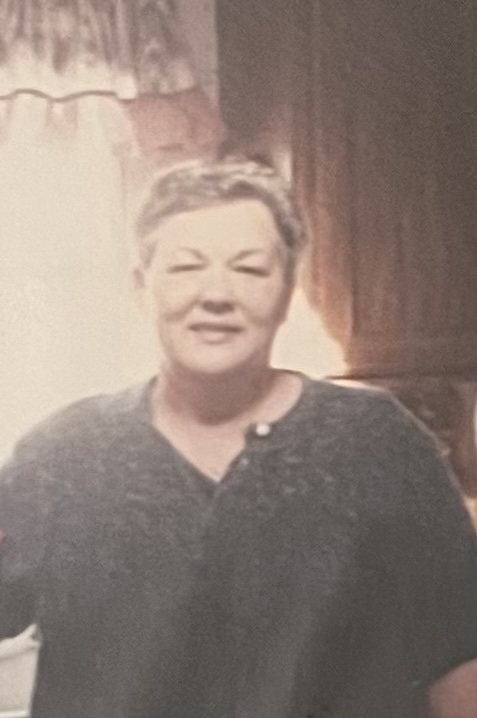Christmas tree farm politics is a real thing in Western North Carolina this holiday season. It shouldn’t be.
By Stevie Brooks
Growing up in Western North Carolina, I have always known that Christmas is a serious business.
Christmas usually started as soon as we finished canning tomatoes. With the stovetop in the basement canning kitchen still warm, the Christmas wreath tables would come out. The tree farm from down the road would haul to us their “ugly” Christmas trees that were sold at a discounted price to be turned into Christmas wreaths.

Geraldine Brooks. Courtesy of Stevie Brooks.
These wreaths were a source of income for my family. After breaking down the tree, we would sit around on milk cartons and trim the branches. The small clippings were called “hands” and were then bunched together to be clamped on the wreath table to the wire wreath frames.
The process was time consuming and sticky, but the resulting smells and wreaths made it all worth it. We would then take them down the road to the flea market to be sold in my daddy’s airbrush T-shirt booth. My daddy would air-brush just about anything anyone asked for. The most popular design was a beach scene with a couple’s names in two hearts. He could whip up a custom car tag before the Stevie Ray Vaugn song playing on the boombox was finished.
That time of year, the wreaths were just as popular, and oftentimes people left with a cartoon T-shirt and a $15 wreath. The rest were given to neighbors with a card.
But this isn’t just a side hobby or how folks spread Christmas cheer. Since the 1950s, the Christmas tree farming industry has been a way for farmers in Western North Carolina to use the steep terrain and cooler climate to their advantage in a region lacking many other opportunities. The Christmas tree farms in Western North Carolina have sustained families like mine for nearly 70 years in one way or another.
In the wake of Hurricane Helene, Western North Carolina saw an outpouring of support from across the country. For one glimmering moment, it didn’t matter who you were, what you believed in, or who you voted for.
Post-election, however, there has been a quick shift back again to skepticism and division.
I noticed that some of the same people who had been asking how to help a month earlier were back to viewing rural communities like mine with less compassion and understanding. I keep seeing comments online and elsewhere how small towns like my own suddenly “deserved” what happened to them because of who we voted for.
Choosing what Christmas tree farm to support based on the owner’s voter registration is a new game that folks from outside of the region have found entertaining to play. A performative way to indicate their political stances and disappointments. I’ve seen the comments encouraging deep dives into the personal lives of Christmas tree families and wildly speculating about labor practices involving undocumented workers.
This is the type of selective compassion my Namaw, Geraldine Brooks, would have found unacceptable. My Namaw grew up in Robbinsville (Graham County) and learned to sew and can food as a necessity. In her retirement she expanded her crafting to include wreath making and arrangements to take to craft shows all over Western North Carolina.
I was also a fixture on this craft show circuit. If Namaw was going, me and my clogging marionette were in the van too, warming up to dance and sing in front of the booth.
My “Namaw Flossy,” her nickname before her death in July 2017 at the age of 78, taught me to “do unto others as you would have them do unto you.” No matter what you believe, the philosophy behind the verse is universal. Finding humanity even when you disagree is how we as North Carolinians begin to heal our communities from natural and social disasters.
It doesn’t get much more Christmas than finding common ground around a Christmas tree and helping someone support their livelihood. The only way out is through one another, and the only way to do that is to take some advice from Flossy and never lose sight of your humanity. “Be good to one another,” wasn’t just a thing Flossy had to often remind me and my sister. It’s the only way to nurture and sustain relationships that make our lives and communities whole.
Do you have any holiday traditions that have become politicized? Contact info@beaconmedianc.org with comments or questions.